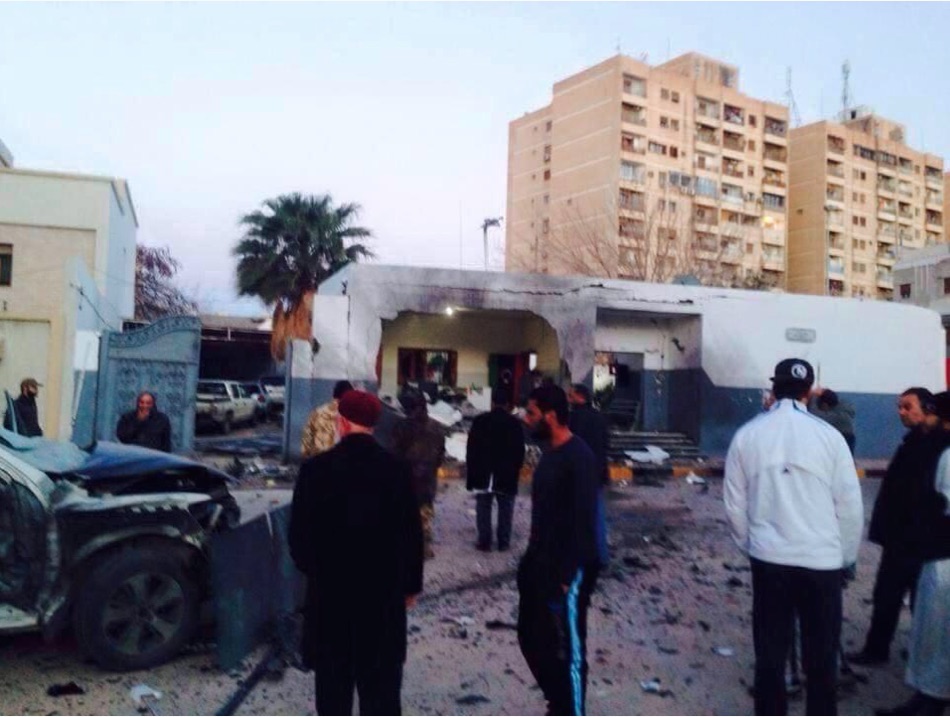Malta, 11 March 2015:
Leading Libyan NGO, Libyan Women’s Platform for Peace (LWPP), released what it called a ”Crises Response . . .[restrict]Strategy” at the 59th Session of the Commission on the Status of Women at the UN today. The event is being held 9-20 March.
This comes after another leading Libyan NGO, the Voice of Libyan Women founder, Alaa Murabit had given the opening address.
In light of the recent terrorist attacks in Libya and the deteriorating security situation, including the heinous beheading of 21 Christians and the bombing in Gubba, leaving 40 dead in Eastern Libya, urgent action is needed in Libya, LWPP said.
As highlighted in the final report of the UN Panel of Experts established pursuant to Security Council resolution 1973 (2011), “over the course of 2014, 2,825 individuals were killed and more than 394,000 people were forced from their homes to live as internally displaced persons across 25 cities in the country”.
The Libyan Women’s Platform for Peace today releases a Crisis Response Strategy.
The strategy was formulated at a meeting of Libyans of diverse backgrounds, facilitated by the Libyan Platform for Peace, which took place from 17-18 February 2015 (the 4th Anniversary of the Libyan Revolution).
It offers a new and inclusive alternative approach to ending the crisis in Libya, with immediate steps to stabilize the situation, taking into consideration political, economic, social, and security factors as well as the failure of the international community and the absence of key stakeholders in the UN led peace talks.
With terrorism threatening to engulf the country one city at a time and the unspoken humanitarian deterioration reaching frightening levels; the need to put an end to the political fragmentation must be fully recognized by all parties to the conflict.
This is recognized by the international community, which is committed to political dialogue with the aim of realising a national unity government. However, “while efforts to find a political solution are indeed necessary, it is equally important to recognize that more than political solution is needed to address the complexities of the situation in Libya. A coherent, holistic, and comprehensive integrated approach is needed” as highlighted by Zahra’ Langhi, founding director of the Libyan Women’s Platform for Peace.
The Crisis Response Strategy includes the following recommendations:
1. A new and expanded mandate for the UN Mission in Libya that addresses the changing realities on the ground in Libya and the humanitarian crisis, as well as the political crisis and security sector reform/DDRR. Libyan voices must be part of the discussion and formulation of this new mandate.
2. Implementation of SCR 2174, ending the impunity of warlords and holding the spoilers of the political process in Libya accountable.
3. Rebuilding the military infrastructure including facilities and camps. Establishing a military training strategy with a human rights approach to counter terrorism in cooperation with the international community. Engaging civil society in the security sector reform and human rights training. Lifting the arms embargo by the UN Security Council should be conditioned on security sector policy reforms and monitoring by civil society and the international community.
4. International assistance in securing the borders and territorial waters to prevent illegal entry into and exit from Libya of arms.
5. International assistance in monitoring the illicit export of crude oil and its derivatives and other natural resources.
6. Activating the Judicial police. Rebuilding all police stations entirely. Establishing concrete solutions to reinstating the police. Establishing a comprehensive plan in collaboration with the international community and civil society on disarmament, demobilization, rehabilitation, and reintegration of militias (DDRR).
7. Re-establishing & restructuring of Petroleum Facilities Guard (PFG) in order for its personnel to be more inclusive of diverse regional backgrounds.
8. Establishing humanitarian Corridors to ensure free movement of people fleeing the violence, while also ensuring these safe passages allow for the transfer of material and assistance to vital institutions (Hospitals, Major Clinics, Distribution Centers & Emergency shelters) in high population density. This includes securing key airports, seaports and main roads.
9. Urgent cctivation of Child caring programs and schools and improving urban security through defined safe zones protected by police, army. International assistance will be needed to train and provide security systems.
10.Establishing an Emergency Medical Aid Committee consisting of MOH, Hospitals Representatives, WHO, UNIML, NGOs, Ministry of Transportation& Security. The function of which is to regularly assess and respond to acute and intermediate health care needs.
11.Urgent rehabilitation of the internally displaced by providing alternative shelters such as prefabricated housing and preparation for further displacement by securing comprehensive livable safe havens. There will be a need for a significant role for international government’s and relief agencies in planning and implementing such urgent objective.
12. Work on reducing the first chapter of the budget (Salaries and the Like), through the full implementation of the National Identification number system. Salaries and the like has to be disbursed only through depositing the disbursements in bank accounts and cash disbursements should be prohibited. This will make tracking and auditing payments easier and accessible at any required time.
13.Establishing an Economic Commission which aids both the Parliament and the government in drafting national economic policies and strategic plans. (Commission members should not exceed 5 members and a set of criteria has to be in place to ensure their expertise, with waivers that allow to appoint a maximum of 2 international experts on the commission).
14.Establishing a bottom-up comprehensive national dialogue which allows for more representation of women and youth. [/restrict]







